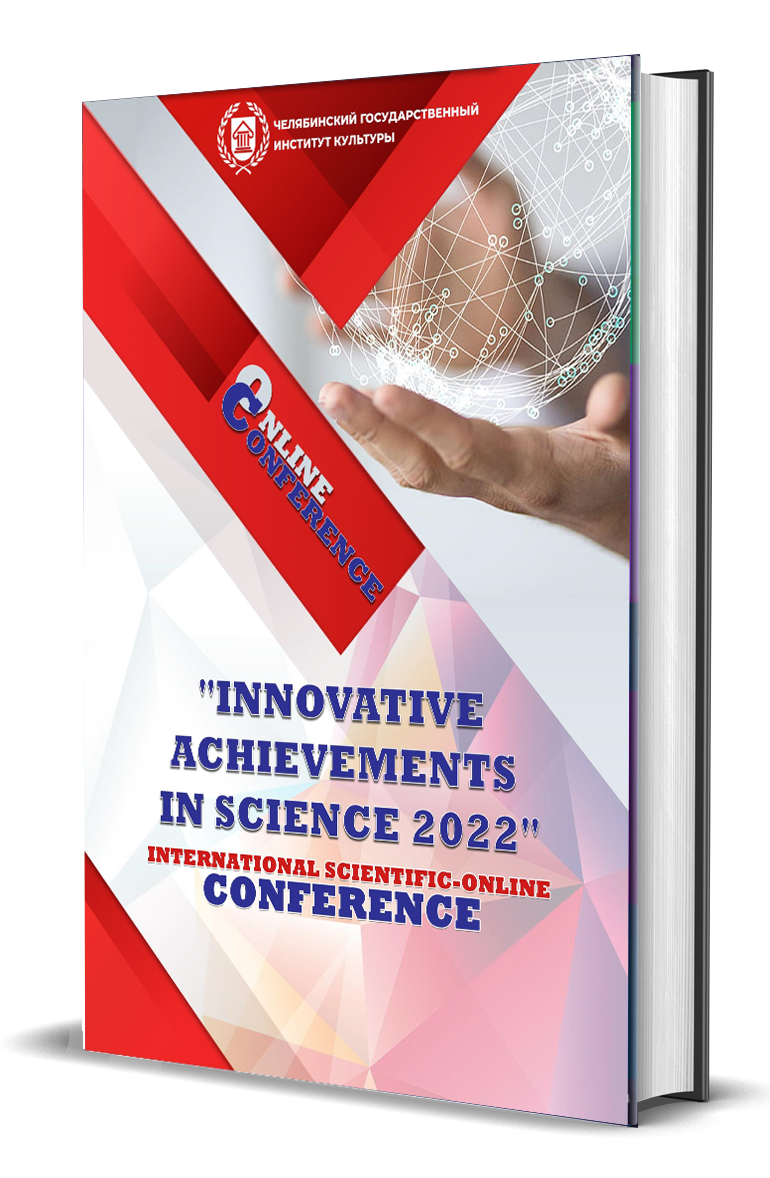CULTURAL CODES IN INTERCULTURAL COMMUNICATION
Keywords:
cultural code, picture of the world, semantic variability, cognitive systemAbstract
Cultural codes refer to the symbols and systems of meaning that hold particular significance for individuals belonging to a specific group or society. The author examines various definitions of the cultural code put forth by linguists and semioticians, analyzing and comparing them. Different aspects of this concept are identified and described, highlighting the connections between cultural codes and individuals' worldview.
References
Алефиренко, Николай [Alefirenko, Nikolay] (2020) “Код культуры в двуязычной картине мира“; 7-20. Retrieved from: https://www.uhk.cz/file/edee/pedagogicka-fakulta/pdf/pracoviste-fakulty/katedra-ruskeho-jazyka-a-literatury/philologia-rossica/philologia-rossica-2/3-studie/1.pdf.
Кармин, Анатолий C. [Karmin, Anatoly S.] (2006) “Философия культуры в информационном обществе: проблемы и перспективы”. Вопросы философии, 2; 52-60.
Simpson, Andrew (2019) Language and Society. Oxford University Press.
Kholova Madina Boboqulovna. (2023). POLITENESS AND CULTURE. Academia Repository, 4(10), 4–9. Retrieved from https://academiarepo.org/index.php/1/article/view/139
Kholova, M. (2023). PRAGMATICS. В МЕЖДУРОДНАЯ КОНФЕРЕНЦИЯ АКАДЕМИЧЕСКИХ НАУК (Т. 2, Выпуск 10, сс. 68–74). Zenodo. https://doi.org/10.5281/zenodo.10054322
Ruziyeva Nilufar Xafizovna, & Xolova Madina Boboqulovna. (2022). Politeness In Literary Works: An Overview. Eurasian Research Bulletin, 7, 200–206. Retrieved from https://www.geniusjournals.org/index.php/erb/article/view/1300
Ruziyeva Nilufar Xafizovna, & Xolova Madina Boboqulovna. Research problems in linguoculturology. Spanish journal of Innovation and integrity Volume:12, November-2022.
Kholova Madina Boboqulovna. (2023). Cognitive Linguistics. American Journal of Language, Literacy and Learning in STEM Education (2993-2769), 1(10), 357–363. Retrieved from https://grnjournal.us/index.php/STEM/article/view/2018
Kholova Madina Boboqulovna. (2023). COGNITION AND LANGUAGE. Scholastic: Journal of Natural and Medical Education, 2(12), 64–71. Retrieved from https://univerpubl.com/index.php/scholastic/article/view/3014
Xafizovna , R. N. . (2023). The Study of Context: From Static to Dynamic. Miasto Przyszłości, 32, 242–246. Retrieved from https://miastoprzyszlosci.com.pl/index.php/mp/article/view/1138
Ruziyeva Nilufar Xafizovna (2021).The category of politeness in different linguocultural
traditions. ACADEMICIA: AN INTERNATIONAL MULTIDISCIPLINARY RESEARCH JOURNAL 11 (2), 1667-1675
Ruziyeva N. (2020). FACE CONCEPT IN THE CATEGORY OF POLITENESS. European Journal of Humanities and Educational Advancements, 1(4), 15-20.
Mahmudova Dildora Murodilloyevna. (2023). CORPORA AND LITERATURE. Academia Repository, 4(11), 159–166. Retrieved from https://academiarepo.org/index.php/1/article/view/186
Mahmudova, D. (2023). CORPUS LINGUISTICS. Академические исследования в современной науке, 2(23), 104-106.
Mahmudova, D. (2023). CORPUS LINGUISTICS. Академические исследования в современной науке, 2(23), 104-106.
Davlatova M.H. Relation of lexical-semantic structure of verbs in the linguistic essence.// IEJRD-International Multidisciplinary Journal, № 5, 2021. – P. 58-62.
Davlatova M.H. Semantic implementation of resultutive structures.// JournalNX - A Multidisciplinary Peer Reviewed Journal, № 6, 2021. – P. 291–294.
Davlatova M.H. Different aspects of resultative structures according to their linguistic essence.// Academicia Globe: Inderscience Research, 2 (05), 2021. – P. 475–479.
Davlatova M.H. Aspectual and lexical-semantic classification of verbs. JournalNX-A Multidisciplinary Peer Reviewed Journal, 8(2). 2022. – P. 116-121.
Davlatova M.H. On the interrelationship of resultive and causative meanings.// World Bulletin of Public Health № 9. 2022. – P. 212-215.
Habibova, M. N. (2021). Jorjina Houellning “Queen of the desert” biografik asarida gertruda Bell timsoli tasviri. Academic research in educational sciences, 2(2), 770-778.
Habibova, M. N. (2021). The theme feminism in the epistolary novels in modern times. ISJ Theoretical & Applied Science, 11(103), 1101-1105.
Habibova, M. N. (2022). THE HISTORY OF THE RUSSIAN EPISTOLARY NOVEL IN EIGHTEENTH CENTURY. EURASIAN JOURNAL OF SOCIAL SCIENCES, PHILOSOPHY AND CULTURE, 2 (3), 135–139.
Habibova, M. N. (2022). EVALUATIVE OBSERVATION ON DH LAWRENCE'S EPISTOLARY ACHIEVEMENT. EURASIAN JOURNAL OF ACADEMIC RESEARCH, 2 (4), 489–494.
Habibova, M. (2022). THEORIES OF INTERTEXTUALITY AND THE BASIC FRAMEWORK OF KRISTEVA’S FORMULATION OF HER THEORY OF INTERTEXTUALITY. Eurasian Journal of Social Sciences, Philosophy and Culture, 2(5), 301-307.
Habibova, Manzila Nuriddinovna (2022). A BIOGRAPHY IS A SPECIALIZED FORM OF HISTORY AND BASIC TYPES OF BIOGRAPHIES. Oriental renaissance: Innovative, educational, natural and social sciences, 2 (5), 495-503.
Habibova, M. N. (2022). Epistolary Novel as a Scientific Problem. American Journal of Social and Humanitarian Research, 3(10), 211–214. Retrieved from https://www.grnjournals.us/index.php/ajshr/article/view/1575
Habibova, M. N. (2022). The Epistolary Form and Art in Modernist Literature. American Journal of Social and Humanitarian Research, 3(10), 206–210. Retrieved from https://www.grnjournals.us/index.php/ajshr/article/view/1574
Habibova, M. . (2022). WRITING THE NOVEL OF LETTERS AND THE ANALYSIS OF LETTER FICTION AND DIARY FICTION. International Bulletin of Applied Science and Technology, 2(11), 260–264. Retrieved from https://researchcitations.com/index.php/ibast/article/view/317
Habibova, M. . (2022). EPISTOLARY NARRATOLOGY AND CITATIONS FROM AN EPISTOLARY SOURCE: SAMUEL RICHARDSON’S PAMELA AND CLARISSA AND FRANCES BURNEY’S EVELINA. Евразийский журнал академических исследований, 2(12), 1131–1135. извлечено от https://in-academy.uz/index.php/ejar/article/view/6655
Manzila Nuriddinovna Khabibova. (2022). JOYCE’S DEVELOPMENT AS AN AUTHOR AND HIS EXPERIMENTS WITH THE EPISTOLARY FORM. American Journal Of Philological Sciences, 2(11), 73–81. https://doi.org/10.37547/ajps/Volume02Issue11-10
Manzila Nuriddinovna Habibova. (2022). LETTER WRITING AS ALLEGORY FOR THE WOMAN WRITER. American Journal Of Philological Sciences, 2(11), 88–92. https://doi.org/10.37547/ajps/Volume02Issue11-12
Habibova, M. N. . (2023). Origins of the Epistolary Novel and the Principal Epistolary Works. INTERNATIONAL JOURNAL OF LANGUAGE LEARNING AND APPLIED LINGUISTICS, 2(2), 70–74. Retrieved from https://inter-publishing.com/index.php/IJLLAL/article/view/1159
Khabibova, M. N. . (2023). The Historical Influence of the Epistolary Novel. INTERNATIONAL JOURNAL OF LANGUAGE LEARNING AND APPLIED LINGUISTICS, 2(2), 75–79. Retrieved from https://inter-publishing.com/index.php/IJLLAL/article/view/1161
Habibova, M. (2023). SPECIFIC POSSIBILITIES WRITING TECHNIQUES USED IN EPISTOLARY FORM AND THEIR EFFECTS ON BOTH THE CHARACTERS AND READERS. Eurasian Journal of Academic Research, 3(5),172–177.Retrieved from https://in-academy.uz/index.php/ejar/article/view/14085
Habibova, M. (2023). EPISTOLARY COMPARISONS AND TRENDS. Евразийский журнал академических исследований, 3(5 Part 4), 330–338. извлечено от https://in-academy.uz/index.php/ejar/article/view/16170
Habibova, M. (2023). PRAGMATICS AND COGNITION. Current approaches and new research in modern sciences, 2(10), 90-96.
Manzila Nuriddinovna Habibova. (2023). THE CONCEPT OF THE WHITE MAN’S SUPERIORITY AND THE PORTRAYAL OF THE ARABIC CHARACTERS IN “THE LAWRENCE OF ARABIA” AND “THE SEVEN PILLARS OF WISDOM”. Academia Repository, 4(10), 24–31. Retrieved from https://academiarepo.org/index.php/1/article/view/96
Habibova, M. N. (2023). Letter Fiction and Diary Fiction. American Journal of Public Diplomacy and International Studies (2993-2157), 1(9), 153–158. Retrieved from http://grnjournal.us/index.php/AJPDIS/article/view/1386
Habibova, M. N. (2023). Women and the Epistolary Novel. American Journal of Science on Integration and Human Development (2993-2750), 1(9), 119-124.





